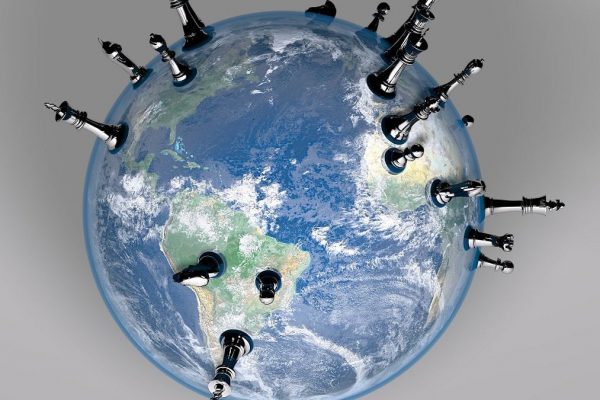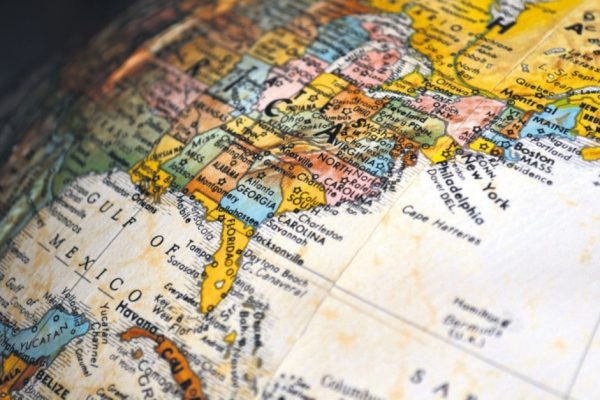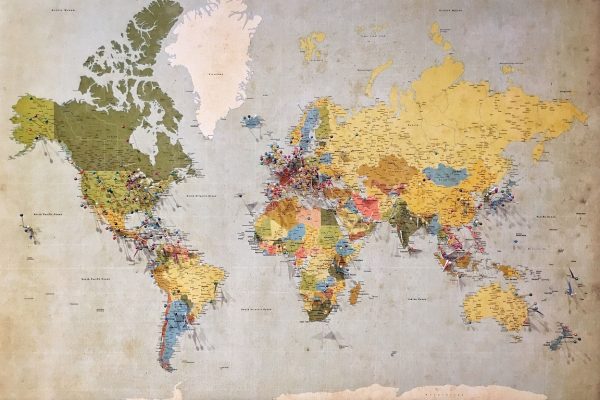This Article corresponds to the “Global Business Strategies” course as part of the Rochat MBA program and was submitted by the student Arniel Pepito.
Geopolitics for 2021 and their impact for Global Business: 2 scenarios
The global business was greatly dominated in 2020 by the impact of the COVID-19 pandemic. As we continue to navigate 2021, it will continue to be on the same trend as vaccine is still not available to general population. The rapidity and severity with which it affected all countries around the world was unprecedented. Government answers to the pandemic are fundamentally geopolitical, involving issues such as national security, global leadership and international cooperation and competition. In most countries, COVID-19 has aggravated tensions around economic inequality, access to health care and social justice. In this essay, I will elaborate two geopolitical scenarios that will impact the global business in 2021 namely Geopolitics of COVID-19 and Geopolitics of US-China relationship.
Geopolitics of COVID-19
The geopolitics of COVID-19 will shape the global operating environment for companies in 2021. The country that wins the vaccine race will get a boost in geopolitical standing and reputation. In the USA, Pfizer and Moderna who are a US based company has been authorized by Food and Drug Administration (FDA) to be used for COVID-19 vaccine. Another American company Johnson and Johnson is expected to apply to the Food and Drug Administration for an emergency use authorization on first week Feb 2021. Which means sometime late February or early in March its vaccine will likely start to be used in the United States if approved. (Helen, B. 2021). This development puts USA in a better geopolitical standing and reputation versus the world although Pfizer is not 100% American company as it partners with BionNTech who is based in Germany. According to (Courtney, M. 2021) from Ey.com, despite the efforts of the COVID-19 Global Vaccine Access Facility (COVAX) — which all major markets except the US and Russia have joined — to promote the fair distribution of the vaccine, distribution could be politicized and based more on ability to pay than on need. India and South Africa may further complicate vaccine deployment by pushing forward with their request at the World Trade Organization (WTO) to waive intellectual property (IP) rights related to medical products during the COVID-19 crisis to allow for wider vaccine production and distribution. As we can see on this move from countries that are member of COVAX has already anticipated political tension, unfairness, and inequality with regards to Vaccine distribution. On the other side of the spectrum, the business implications according to Courtney, M. (2021) are: Pandemic uncertainty, COVID-19 reinforcement of nationalism, the need to re-evaluate supply chains and immigration and travel restrictions.
Geopolitics of US-China relationship
Since Donald Trump took office in 2017, the United States has introduced a series of measures to try to reduce its trade imbalance with China. But Trump’s decision to impose tariffs on China was preceded by a decade of failed negotiations aimed at establishing a more equitable trade relationship between the two countries. With the new elected US president Joe Biden, he has a rough road ahead to undertake. According to Natasha, T. (2021) of CNBC, the biggest wildcard on the world stage for 2021 will be the US relationship with China. While it’s not yet clear how much the new administration’s means will differ from Trump’s approach, Biden’s intention to hold China accountable for its role in the spread of the coronavirus will be a major geopolitical move. But unlike Trump, Biden believes in a multilateral coalition of like-minded allies to counter what it sees as Chinese threats and unfair practices. With regards to the US-China trade ware continuation, the graph (Fig 3) from Courtney, M. (2021) shows a sharp decline on the US imports from China and minor decline on US exports to China.

Additionally, both countries will continue to compete in the following four areas: Courtney, M. (2021)
1.Trade relationship
– China and the US will continue to try to disentangle their strategic interdependence in 2021, with the Biden Administration likely to perpetuate many of the policies pursued under Trump.
2.5G Technology
– China and US will compete on who will be leader on 5G advancement, semiconductors and AI. China will roll out its 14th five-year plan (2021—25), which emphasizes self-reliance in science and technology. The US is likely to try to support domestic technology companies and further limit Chinese companies’ access to American technology inputs and commercial opportunities abroad.
3.Industrial policy
– Both countries will try to disentangle bilateral economic ties, particularly in strategic sectors. Beijing will continue to implement its “dual circulation” innovation-driven economic development strategy, which seeks to maintain China’s cross-border trade and investment flows while also boosting its advanced manufacturing sector to become more self-sufficient. Biden has indicated his administration will use this strategic competition with China to invest in domestic capabilities in which it believes the US has fallen behind — most notably, 5G wireless networks, AI and clean energy.
4.Chinese sovereignty
– There will be friction in areas of Chinese sovereignty, including its maritime territorial boundaries in south china sea and its stance on noninterference in what Beijing considers to be a domestic affair. Washington will continue to push on both fronts, however, with sanctions, the likely increased use of export bans in response to the situation in China’s Xinjiang region and continued engagement with Taipei.
Furthermore, the business implications of this US-China tensioned relationship will include: companies will continue to face supply chain cost increases and disruptions, Technology sector competition will complicate data and intellectual property management, Companies operating in both markets could face reputational risks and Sanctions could affect access to capital and valuations.
Conclusion:
In summary, the global business has been greatly impacted by the COVID-19 pandemic that permeates to the two geopolitical scenarios sited on this essay, namely Geopolitics of COVID-19 and Geopolitics of US-China relationship. COVID-19 has presented executives with the opportunity to design and implement a geostrategy to improve geopolitical risk management and enterprise resiliency in both the short & long term. The US-China tensioned relationship on the other hand, provides businesses a heads up to assess the supply chain challenges and opportunities, determine how US-China competition in the technology sector will affect your business and determine whether your company is exposed to any sanctions risks imposed by the US or China. The road ahead for businesses is rough but as Sergio Rebelo(Northwestern University) once said, COVID-19 will leave a lasting imprint on the world economy, causing permanent changes and teaching but the most important lesson from this pandemic is the importance of working together on problems that affect the entire human race.
References:
Helen, B. (2021) “Comparing the Covid-19 vaccines developed by Pfizer, Moderna, and Johnson & Johnson”
Courtney, M. (2021) “2021 Geostrategic Outlook”
Natasha, T. (2021) “China will be the biggest geopolitical challenge for Biden this year”






